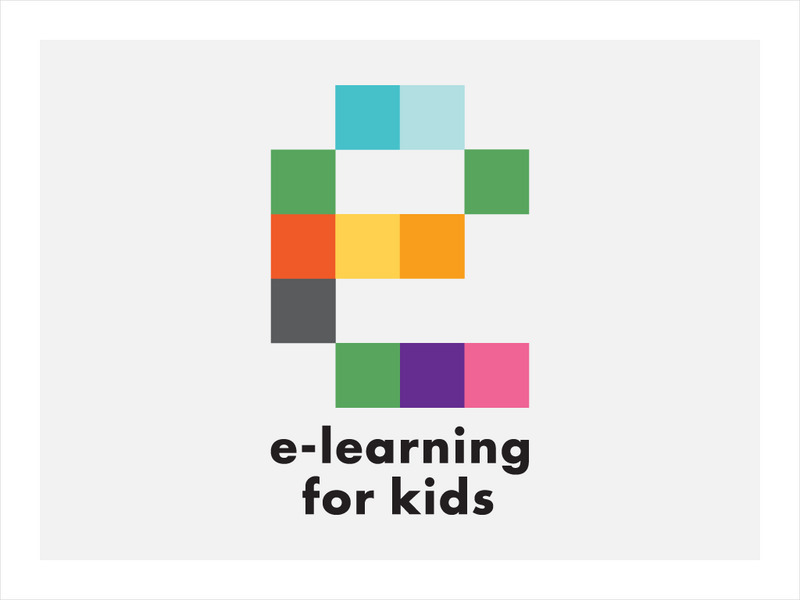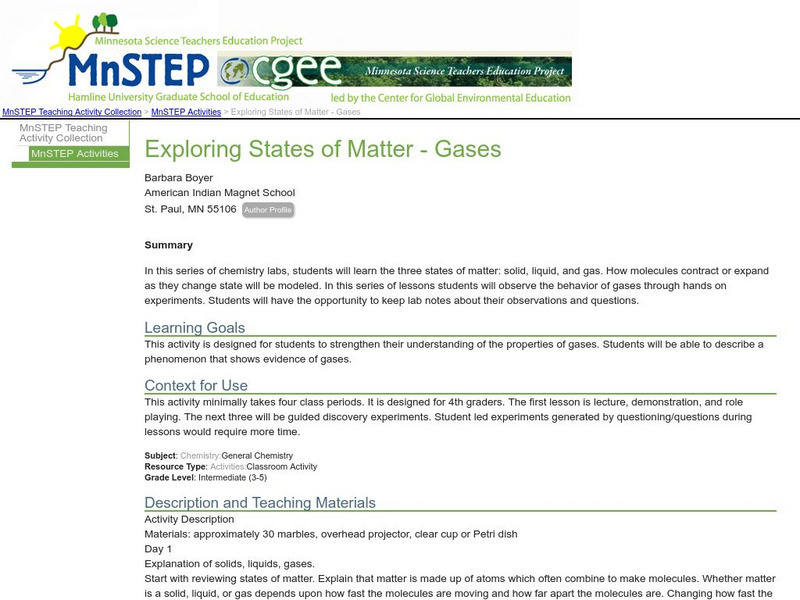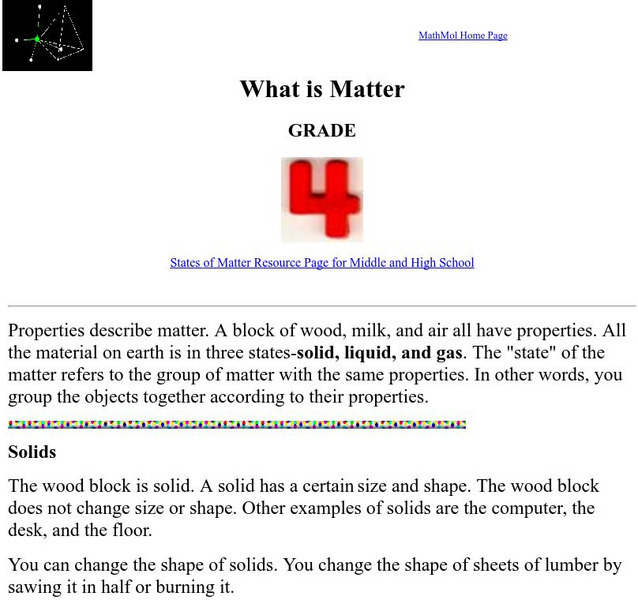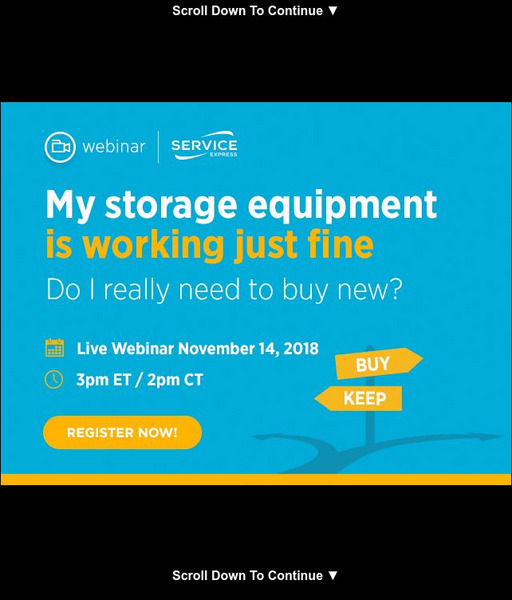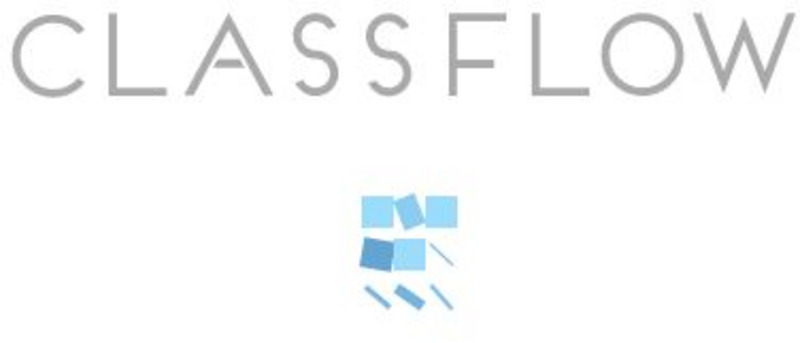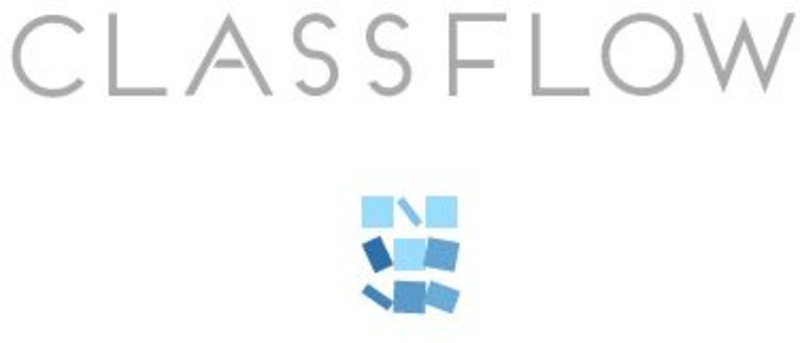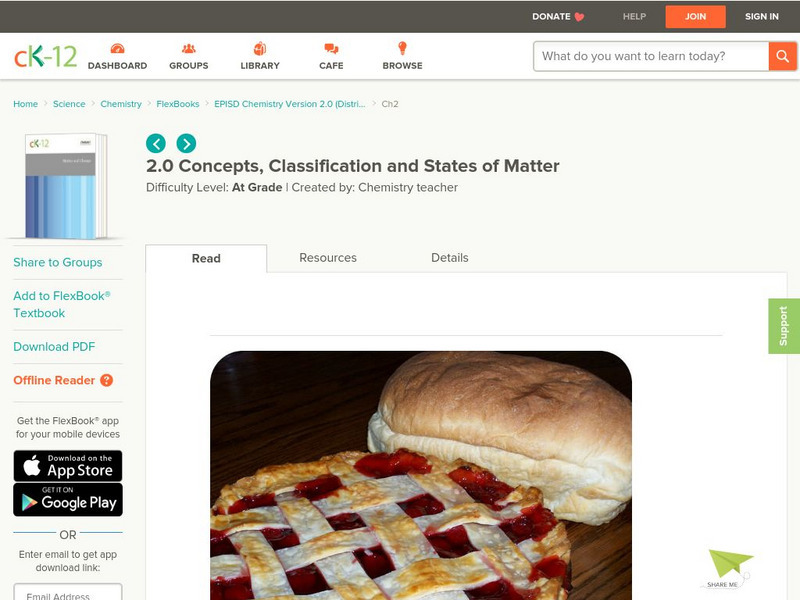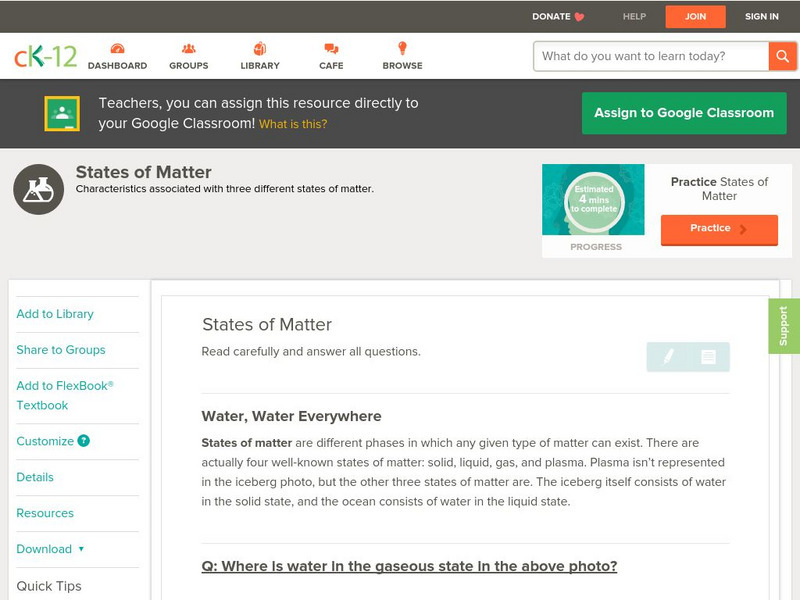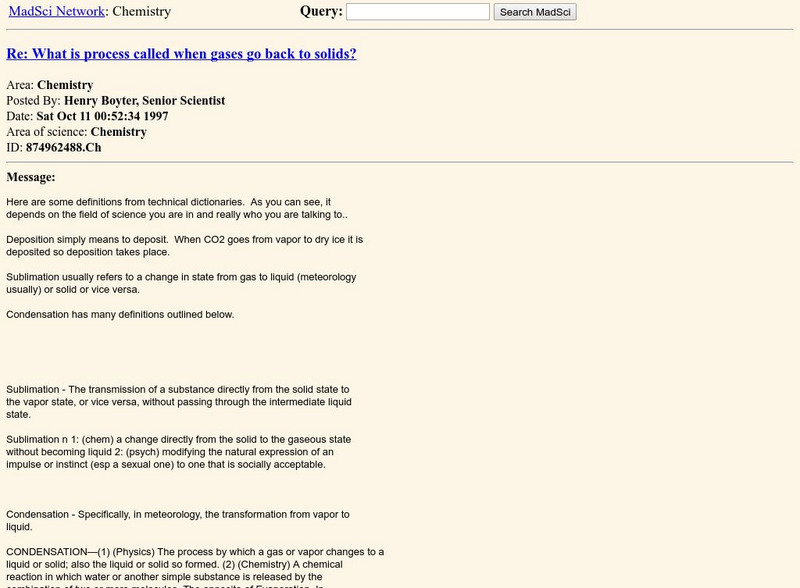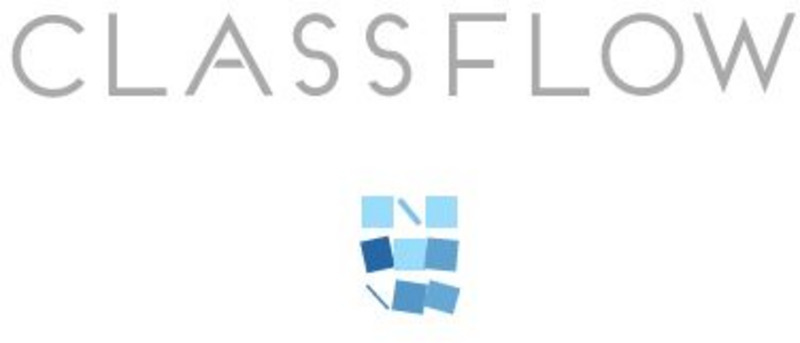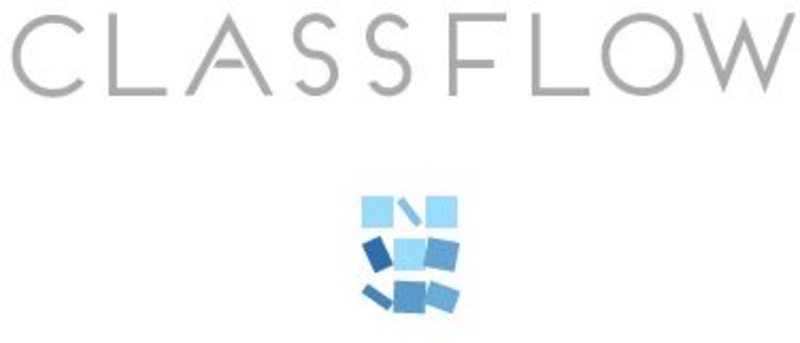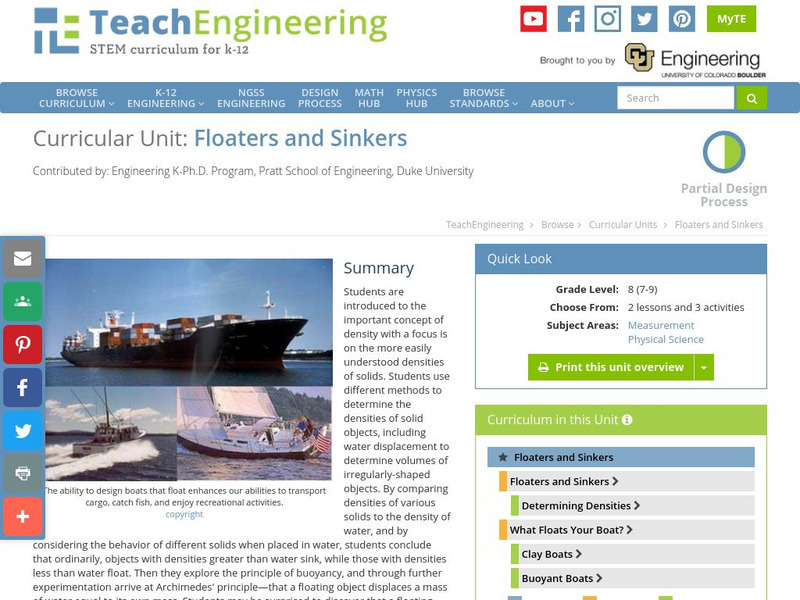E-learning for Kids
E Learning for Kids: Science: Loch Ness: What Happens When Solids and Liquids Are Heated or Cooled?
Students will look at what happens to different types of matter when they have a change of state.
Science Education Resource Center at Carleton College
Serc: Exploring States of Matter Gases
In this series of chemistry labs, students learn about the three states of matter by observing how molecules contract or expand as they change state.
New York University
New York University: What Is Matter?
At this resource discover the difference between solids, liquids, and gases. Practice what you just learned with included review questions.
Tech Target
Whatis.com: Specific Gravity
This article tells what specific gravity and how to compute the specific gravity for solids, liquids, and gases.
Simon Fraser University
Chem1 Virtual Textbook: Densities of Substances and Materials
As part of a larger site called "Getting started in Chemistry," this site examines various topics related to the densities of substances and materials. Included in the study are properties of solids, liquids and gases, and how density is...
ClassFlow
Class Flow: States of Matter Experiment
[Free Registration/Login Required] This flipchart goes through the basics of identifying the different states of matter: solids, liquids, and gases. It also has an exciting (and easy) experiment for students to combine substances, get a...
ClassFlow
Class Flow: What's the Matter?
[Free Registration/Login Required] This flipchart is an introduction to investigating matter: solids, liquids, and gases.
ClassFlow
Class Flow: Matter 2nd Grade
[Free Registration/Login Required] Interactive flipchart teaching the states of matter for a 2nd grade classroom containing four topics with several lessons in each one. The topics covered are: matter, solids, liquids, and gases....
ClassFlow
Class Flow: States of Matter Venn Diagram
[Free Registration/Login Required] States of Matter: Venn Diagram for Solids, Liquids, and Gases.
Curated OER
Matter
A brief site which defines solids, liquids and gases along with a drawing of each.
E-learning for Kids
E Learning for Kids: Science: Seychelles: How Do We Hear?
This lesson teaches students about how sound vibrations are transmitted through solids, liquids, and gases, and about how materials may absorb sound.
TeachEngineering
Teach Engineering: Traveling Sound
Students explore how sound waves move through liquids, solids and gases in a series of simple sound energy experiments. Understanding the properties of sound and how sound waves travel helps engineers determine the best room shape and...
TeachEngineering
Teach Engineering: The Energy of Music
Students are introduced to sound energy concepts and how engineers use sound energy. Through hands-on activities and demonstrations, students examine how we know sound exists by listening to and seeing sound waves. They learn to describe...
Physics4kids
Physics4 kids.com: Friction Basics
This resource provides a brief overview of friction. Its' affects on solids, liquids and gases is described with diagrams. An explanation of how friction is measured is included in the discussion. An online quiz can be used to check your...
CK-12 Foundation
Ck 12: Concepts, Classification and States of Matter
[Free Registration/Login may be required to access all resource tools.] Freshly baked bread and cherry pie are two delicious parts of any meal. What happens to the ingredients that go into the bread and the pie as they are heated in the...
Wikimedia
Wikipedia: Materia
Explore the concept of matter in this Spanish-language encyclopedia entry. This site features the properties of matter, the Law of Conservation of Matter, and other important features of matter.
CK-12 Foundation
Ck 12: Chemistry: States of Matter
[Free Registration/Login may be required to access all resource tools.] Definition of state of matter and the three common states of matter and their differences.
MadSci Network
The Mad Scientist Network: Chemistry
The question "What is process called when gases go back to solids?" is discussed in detail. A comparison of the processes of sublimation, deposition and condensation is made.
Ducksters
Ducksters: Kids Science: Melting and Boiling
Kid's learn about the science of melting and boiling. How matter changes state from solids to liquids to gases.
ClassFlow
Class Flow: Matter
[Free Registration/Login Required] This flipcharts explains the basics of matter. Opportunities for student involvement include measuring solids, identifying matter, and a sorting activity.
Museum of Science
The Atom's Family: Phases of Matter
Help the Phantom choose a material and observe the changes at different temperatures in the molecule chamber. What happens to the elements or molecules as the temperature changes?
Other
Teaching Ideas for Primary Teachers: Science Ideas
A great resource to discover fun new activities to use in your classroom. Activities are age-appropriate, and span several science topics.
ClassFlow
Class Flow: Matter
[Free Registration/Login Required] This flipchart is a lesson covering four of the five states of matter. It includes several assessment questions.
TeachEngineering
Teach Engineering: Floaters and Sinkers
Through this curricular unit, students are introduced to the important concept of density. The focus is on the more easily understood densities of solids, but students may also explore the densities of liquids and gases. Students devise...
Other popular searches
- Liquids Solids and Gases
- Solids Liquids Gases Quiz
- Matter Solids Liquids Gases
- Science Solids Liquids Gases
- Liquids Solids Gases
- Nature Liquids Solids Gases
- Liquids, Solids and Gases


